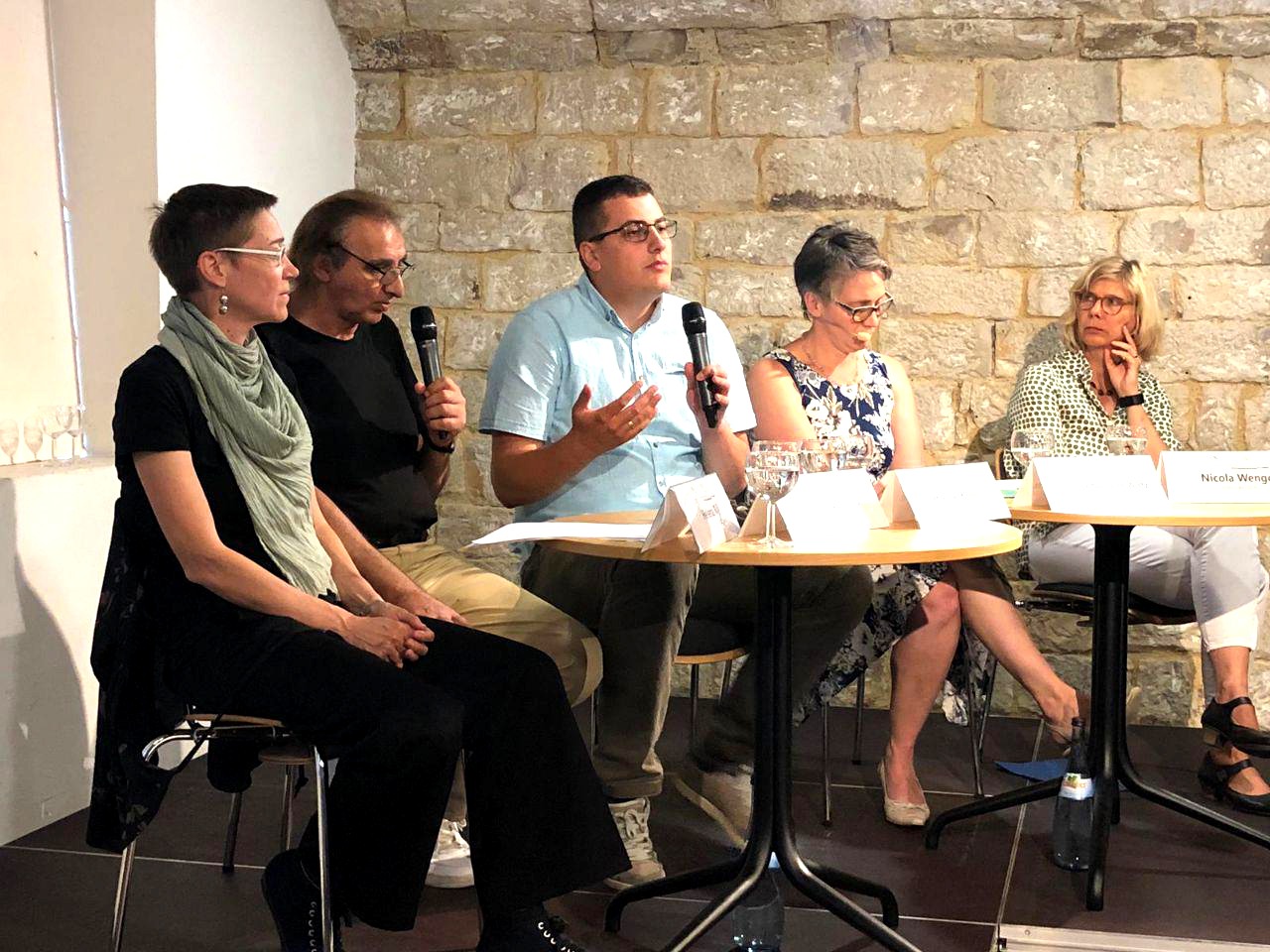At the initiative of our friends from Germany, Apatiner Gemeinschaft, the Donauschwäbisches Zentralmuseum (DZM) from Ulm and the Donaubüro invited us to a panel discussion on memory, reconciliation, and research on the Danube Swabians. The title of the panel discussion was “Peaceful Coexistence in the Former Yugoslavia through Memory and Reconciliation?”. On 4 July, Nedžad Novalić and Helena Rill participated in this discussion on behalf of the Center for Nonviolent Action.
Dr. Nicola Wenge, the executive director of the Stiftung Erinnerung/Dokumentationszentrum Oberer Kuhberg (DZOK), also participated on the panel. This center and foundation work on the culture of memory, as well as offering a critical take on the history of national socialism in that region, and the meaning of democracy, tolerance, and human dignity. Within this context, a series of public panels was organised throughout this year. DZOK also runs an archive, as well as a museum/memorial for the Oberer Kuhberg concentration camp in Ulm.
The promotion of our work and the panel discussion were well organised; it was a pleasant experience and we felt welcome. We spoke about our peacebuilding efforts and heard the German perspective as well. It is interesting to note the various connections that cropped up during our stay in Ulm: the Donauschwäbisches Zentralmuseum that we toured with its director, Christian Glass; the history that Germany is still grappling with, especially when it comes to national socialism; and the wars in the former Yugoslavia. The link between all of these is the importance and necessity of working on memory and a past that has still not been fully processed.
The tour through the museum (DZM) gave us a broad overview of the Danube Swabians, given that this is the central museum that collects the history of the Danube Swabians from all the different Danube regions. It covers all the periods important to their fate, including the Second World War and the postwar period. Some of the facts were known to us from research and talking to people who work on this topic, but it is impossible to not react when you actually encounter, for example, a message in a bottle from a place that had been a mass grave. It is especially interesting to note that part of this exhibition was presented in Novi Sad some ten years ago (although only the section concerning the period up to the Second World War).
The feeling of understanding and exchange was also present at the meeting with DZOK, as well as while touring Oberer Kuhberg, the former concentration camp in Ulm. The historian and archivist Josef Nassl gave us the tour and provided context and we heard of the obstacles that they face as well as how they work. It was difficult but important to do their tour and to see: important to see how necessary it is to keep the memory of such events alive as a lesson to never repeat them and to remember how human dignity must be inviolable (as the wall inscription at the memorial states); difficult to see the feelings of disbelief and the weight of the suffering of the people who were interned at this camp.
Finally, we met with Petar Mijatović and Wilhelm Paitz, from the German Apatin association and heard their personal stories and the stories of the Apatin Danube Swabians. Wilhelm Paitz attended the exhibition “On the Trail of the Danube Swabians in Vojvodina” that was held in Apatin in October of last year. As it turns out, we had photographed his uncle’s grave and that photograph was part of the exhibition. He could not locate it in Apatin, but he did locate it on our photograph. Again, everything is connected.
It is a very good feeling to connect with others and to see our circles widen both geographically and fundamentally. This exchange again reassured us that it is important to work on human dignity being truly inviolable, as the Constitution of the Republic of Germany clearly states. In Serbia, we are not as specific in these matters. And they are not a given.
